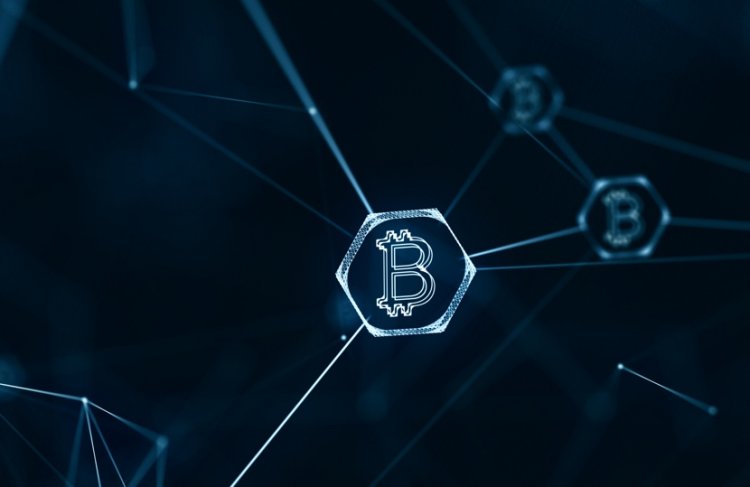Can Blockchain Improve the Digital Education Industry?
Blockchain has the capacity to fundamentally change the digital education industry. But let's see what it has to offer that makes it worth making it happen.

Blockchain's Potential to Improve Digital Education
Digital education has become quite popular, especially during and after the pandemic. Due to this popularization, we are witnessing a change in the functioning of our information systems. So, are we entering an era where education is completely digital? What are the advantages of moving to Web 3.0?
What is Blockchain?
Blockchain is the technology that makes Bitcoin and other crypto money transactions secure. Blockchain is a shared database that contains all information in a digital format, offering a high level of security for selling, purchasing and creating credentials. Blockchain allows Bitcoin and other cryptocurrencies payments to be processed without the need for a third party or a bank.
Benefits of Blockchain
What makes people want to buy Bitcoin, Ethereum and other digital currencies?
Decentralization
Blockchains spread data across a network of multiple nodes to ensure that there is no central point of failure. When users store information on a blockchain, it becomes impossible to change records without peer detection. The factor that makes blockchains so attractive to financial operations and other institutions is the strength of this security.
Transparency
Due to the decentralized nature of the blockchain, people can view all transactions transparently. Each block is linked to the previous block in the chain, so all transactions are stored in such a way that they can never be changed or reversed. Since each node has its own copy of the transaction and these copies are updated as new blocks are added, you can monitor all the movements in the network as you wish.
Security
Blockchain technology offers several advantages to anyone who wants to share information with others. One of these benefits is that it provides a secure way to store and share data without the risk of being hacked. This secure way is a special password that you will use to access your account. Many people lose their digital assets because they do not store these passwords in a secure environment. Therefore, it is imperative that you physically store your password, if possible.
Digital Education Can Benefit From Blockchain
Digital education may be one of the industries most impacted by blockchains. With digital education, you can learn to edit pictures and videos, develop programs, learn new languages and many other things without attending a physical course. But how exactly can blockchain technology contribute to digital education?
Digital Data Integrity
Blockchain technology is an excellent way to ensure that all the information you need in the field of data integrity is provided. Blockchains provide flexibility and validation of data with multiple blockchain-based data streams instead of a single center of truth to prevent data from falling into the wrong hands. This means that your learning materials will be constantly verified and no one can access your data. Data security is crucial to the success of a student program.
Success Management
The fact that blockchain-based education is digital in nature makes learning much more efficient and effective. Digital education has the potential to be much more effective than traditional face-to-face education, especially for those who do not have access to classroom education. Because it becomes possible for instructors to monitor individual progress, provide targeted feedback, deal with each student individually, and make instant assessments. The most important point of education is not grades. How well students perform should be at the center of education. With a good and fair grading system, everyone can benefit from digital education. In this way, students will be motivated to learn and teachers to teach, while employers will have more incentives to hire new employees.
Verification of Diplomas
Blockchain can be a useful tool to enable the verification of degrees and other credentials. For example, this technology can be used to prove that a person is indeed a trained electrician or plumber and that their degree is not fake. In addition, blockchain can be used to provide portability for verified credentials. This allows professionals to switch jobs without having to re-document their skills each time.
More Affordable Courses
One of the most important obstacles to learning, especially in underdeveloped countries, is its cost. Students who cannot afford textbooks or do not have access to libraries have few opportunities to learn in a classroom without having to travel to larger settlements and spend money.
Global Access to Education
One of the biggest problems with today's education is the access problem. You are likely to find that many Ivy League universities attract the most talented people in the world. However, many other universities without access to high-quality research and well-developed departments will not be able to achieve this. When blockchain is applied to digital education, it will be much easier for students to access all relevant information about certifications, courses and career resources. In this way, students can learn quickly by practicing most efficiently and develop skills that will help them become professionals in any field. Education is an equalizer; It is a space where talents can be discovered and nurtured, regardless of where a person lives or their qualifications. This idea is even more valid in the blockchain world, where anyone can access great learning materials and interact with the brightest minds in their field.
Conclusion
A fair system for all may be possible by applying blockchain technology to digital education. It is a system where everyone has equal access to educational materials and no one is left out. Blockchain also provides a secure way to verify certificates, diplomas and accreditations by acting against forged documents and bribery or other unfair means. Blockchain can fundamentally change digital education and create equity in access to information. This will naturally improve the business world.